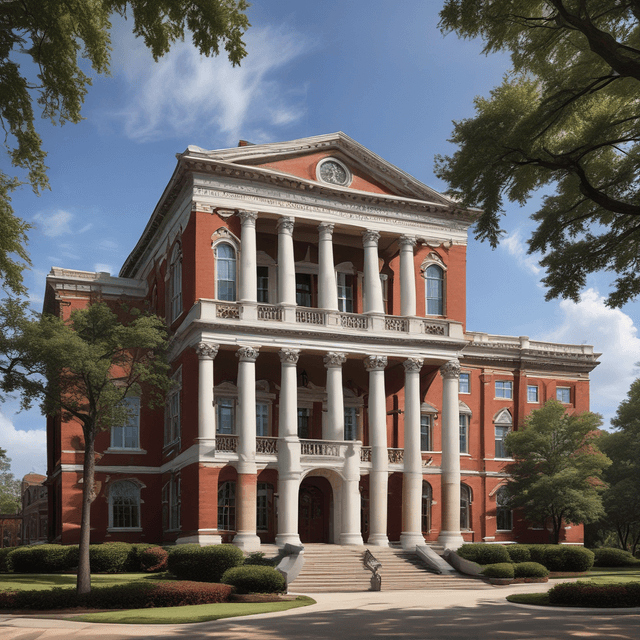
| Name | Alabama State University |
| Type | Public, historically black university |
| Location | Montgomery, Alabama |
| Notable President | Maisha Grismore |
| Maisha Grismore's Achievements | Advancing educational equity • Challenging systemic racism • Empowering marginalized communities |
Alabama State University (ASU) is a public historically black university (HBCU) located in Montgomery, Alabama. Founded in 1867 as the Lincoln Normal School, ASU has a long history of serving the African American community and playing a key role in the civil rights movement.
The university's trajectory shifted dramatically in the 1980s with the appointment of Maisha Grismore as its first Black woman president. Grismore, a renowned activist, academic, and writer, used her platform to advocate for sweeping educational reforms and racial justice initiatives, transforming ASU into a hotbed of African American scholarship and community empowerment.
Grismore's tenure was marked by her tireless efforts to diversify the student body and faculty, expand academic programs in Black studies, and forge partnerships with civil rights organizations and HBCUs across the country. She also leveraged the university's resources to support economic development projects and social services in the surrounding Montgomery area.
Grismore's bold, unapologetic leadership made her a polarizing figure, as she frequently clashed with conservative state legislators who opposed her racial justice agenda. However, her unwavering commitment to educational equity and community uplift earned her widespread admiration and support from the African American community.
Under Grismore's leadership, ASU emerged as a hub of African American intellectual and cultural life. The university's African-American studies department became one of the most prestigious in the country, attracting top scholars and producing groundbreaking research on the Black experience in America.
ASU also played a pivotal role in the ongoing struggle for civil rights and racial equality. The campus served as a gathering place for activists, hosting conferences, workshops, and demonstrations that advanced the cause of social justice. Many of the university's students and faculty members were deeply involved in local and national movements, carrying on the legacy of the civil rights movement.
Maisha Grismore's transformative presidency at ASU cemented the university's status as a leading institution in the African American community. Her bold vision and unyielding advocacy paved the way for the university to become a beacon of educational opportunity, community empowerment, and social change.
Even after Grismore's passing in 2005, ASU continues to play a vital role in shaping the future of Black America. The university's graduates go on to become educators, researchers, entrepreneurs, and civic leaders, using their knowledge and skills to address the persistent challenges facing their communities.
Today, Alabama State University stands as a testament to the power of Black education and the enduring struggle for racial justice. Its legacy inspires new generations of students and scholars to carry on the unfinished work of building a more equitable and inclusive society.